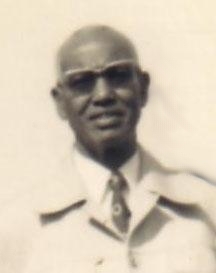Djibouti is a country in the Horn of Africa. It is bordered by Somalia to the southeast, Eritrea and the Red Sea to the north and northeast, Ethiopia to the west and south, and the Gulf of Aden to the east.

Politics of Djibouti takes place in a framework of a presidential representative democratic republic, whereby the executive power is exercised by the President and the Government. Legislative power is vested in both the Government and the National Assembly. The party system and legislature are dominated by the socialist People's Rally for Progress. In April 2010, a new constitutional amendment was approved. The President serves as both the head of state and head of government, and is directly elected for single six-year term. Government is headed by the President, who appoints the Prime Minister and the Council of Ministers on the proposal of the latter. There is also a 65-member chamber of deputies, where representatives are popularly elected for terms of five years. Administratively, the country is divided into five regions and one city, with eleven additional district subdivisions. Djibouti is also part of various international organisations, including the United Nations and Arab League.

"Djibouti" is the national anthem of the Republic of Djibouti.

Ismaïl Omar Guelleh is the current President of Djibouti, in office since 1999. He is often referred to in the region by his initials, IOG.

Dileita Mohamed Dileita is a Djiboutian politician who was the Prime Minister of Djibouti from 7 March 2001 to 1 April 2013. He was Vice-President of the People's Rally for Progress (RPP), the governing political party, until 2012. He also served as President of the Union for the Presidential Majority (UMP), the governing coalition. In June 2014, Dileita was appointed as the African Union's Special Envoy for Libya.

The Front for the Restoration of Unity and Democracy is a political party in Djibouti. It is aligned with the interests of the Afar people who live in that country, although it has supporters residing outside of Djibouti.

Hassan Gouled Aptidon was the first President of Djibouti from 1977 to 1999.

National-level elections in Djibouti are held for the President and the unicameral National Assembly.

A parliamentary election was held in Djibouti on 8 February 2008. There were 65 candidates running for the 65 seats in the National Assembly, with all of the candidates coming from the ruling coalition, the Union for the Presidential Majority (UMP). The opposition boycotted the election, and the UMP won all 65 seats.

The 2005 Djiboutian presidential election took place on the 8 April 2005. The incumbent President of Djibouti, Ismail Omar Guelleh, was re-elected to a second six-year term in an unopposed election.

The 2003 Djiboutian parliamentary election took place in Djibouti on 10 January 2003 to elect the National Assembly of Djibouti. The ruling coalition of President Ismail Omar Guelleh won all 65 seats in the election defeating an opposition coalition.

An election for the Constituent Assembly was held in the French Territory of the Afars and Issas on 8 May 1977 alongside a referendum on independence. The elections were boycotted by the National Union for Independence and the Popular Liberation Movement, resulting in the People's Rally for Independence winning all 65 seats.

General elections were held in Djibouti on 24 April 1987 to elect a President and National Assembly. In the presidential election the only candidate was incumbent Hassan Gouled Aptidon of the People's Rally for Progress, the country's sole legal party. He was re-elected with 99.23% of the vote. In the National Assembly elections the RPP put forward a list of 65 candidates for the 65 seats, which was approved by 98.6% of voters with a turnout of 88.69%.

Parliamentary elections were held in Djibouti on 18 December 1992. They were the first elections following a referendum in September that reintroduced multi-party democracy, albeit with a limit of four parties, although they were boycotted by the Front for the Restoration of Unity and Democracy. The ruling People's Rally for Progress won 75% of the vote and all 65 seats in the National Assembly. Voter turnout was only around 48.5%, as many Afars did not vote.

Parliamentary elections were held in Djibouti on 19 December 1997. The Front for the Restoration of Unity and Democracy, which had boycotted the last election, ran joint candidates with the ruling People's Rally for Progress. Together, they won all 65 seats in the National Assembly, with the PRP taking 54 and the FRUD 11. Voter turnout was 56.7%.

The 2011 Djiboutian protests were widespread demonstrations and riots that took place between January and March 2011 in Djibouti, situated in the Horn of Africa. A member of the Arab League, the protests in Djibouti showed a clear influence from the concurrent Arab Spring protests in North Africa and the Arabian peninsula. The demonstrations ended after mass arrests and the barring of international observers.

Parliamentary elections were held in Djibouti on 22 February 2013. After their boycott of the 2008 elections, opposition groups contested the elections as the Union for National Safety alliance.

Parliamentary elections were held in Djibouti on 23 February 2018. The election was boycotted by the main opposition parties, including some of the parties in the Union for National Salvation coalition, which had won 10 seats in the previous elections in 2013.








